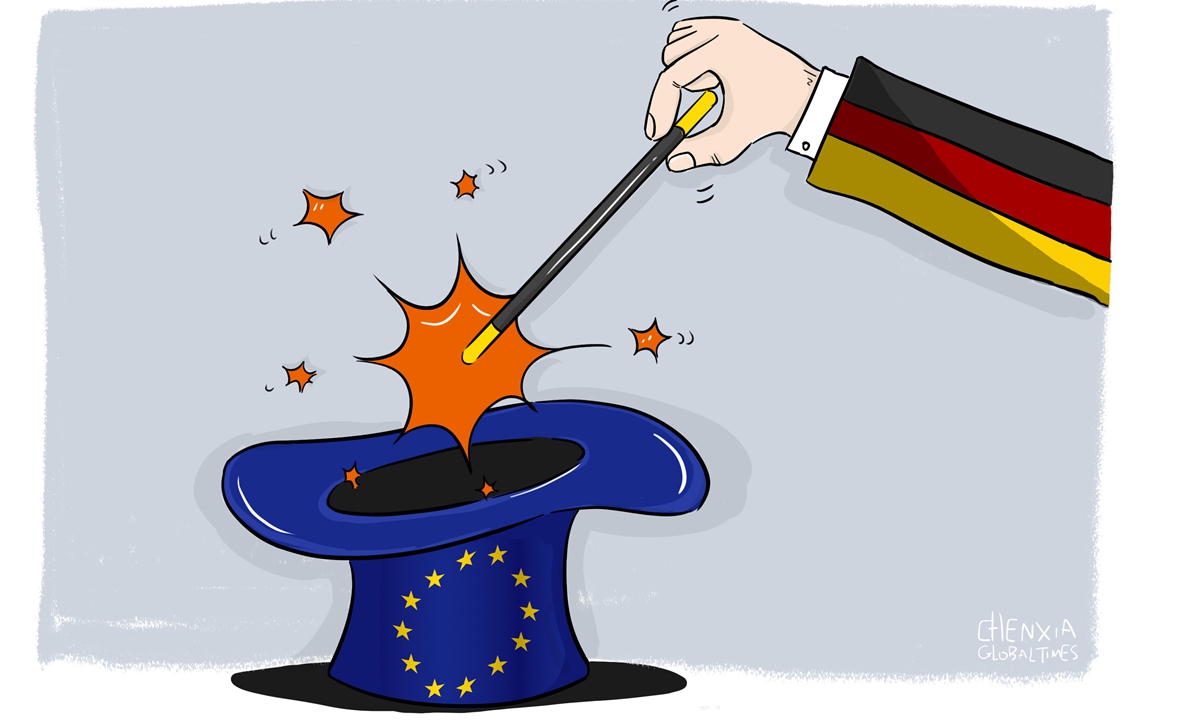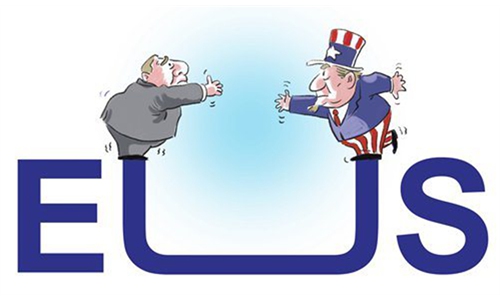COMMENTS / EXPERT ASSESSMENT
China ties could be a highlight of new Germany-led EU

Illustration: Chen Xia/GT
Germany has recently taken over the rotating presidency of the Council of the European Union (EU) amid a devastated global economy. It is highly anticipated that Germany will lead the European Union out of the pandemic crisis and gain progress in economic resumption.With a less united Europe and loosened ties with the US, shoring up China-EU cooperation may become a highlight for the new Germany-led EU.
After five days of tough negotiations, EU members finally agreed on a 750 billion euro ($858 billion) coronavirus recovery aid package. The marathon negotiations, however, portended that the "make Europe strong again" goal will be anything but an easy campaign for the new EU host state.
EU members have seen a growing imbalance over recent years, leading to varying levels of capability in dealing with the pandemic and the following economic recovery. With declining cohesion within the framework, various difficult negotiations are obstructing the EU's recovery path.
A Merkel-led Germany has shown a trend of distancing itself from the US due to the Trump administration's transactional diplomacy and Trump's constant withdrawals from international organizations.
German senior officials' recent notion has shown that Germany would not follow US schemes to attack China over issues related to the Hong Kong Special Administrative Region. And it has remained its stance on strategic partnership with China.
With Germany at the helm, it is expected that a post-Brexit EU could be more independent in strategy in the face of US threats or cajolement. Based on EU members' essential interests, the EU may be inclined to seek a balance between China and the US, and promote different issues separately rather than simply pick a side.
In the current uncertain international environment, the urgency of strengthening China-EU relations has been recognized by both sides. And there are plenty of sectors in which cooperation could be enhanced for the mutual benefit of both sides.
The EU has now embarked on a green and digital economic transformation path, and is striving to transform post-pandemic economic recovery into a driving force for the EU's economic structural transformation, in which Germany has played an active role. Meanwhile, China has great demand for climate protection cooperation and experience exchanges with Germany and Europe. And although they have taken different paths, the digital transformations of China and Europe possess high complementarity.
Other potential areas for cooperation include the implementation of the Paris Agreement, tackling global climate change, and artificial intelligence. With the COVID-19 pandemic still spreading across the world, the two sides could also join hands to research and develop vaccines.
Though it will not be an easy task for EU members to effectively band together to develop independent strategies, and though there remain cognitive differences in China-EU relations, China and the EU have remained committed to resolving differences through constructive dialogue.
It is expected that the China-EU bilateral investment treaty will be concluded soon, and EU members will benefit more from China's further opening-up, which will be particularly important for the EU in the post-pandemic era.
The author is director of the German Studies Center at Tongji University. bizopinion@globaltimes.com.cn


